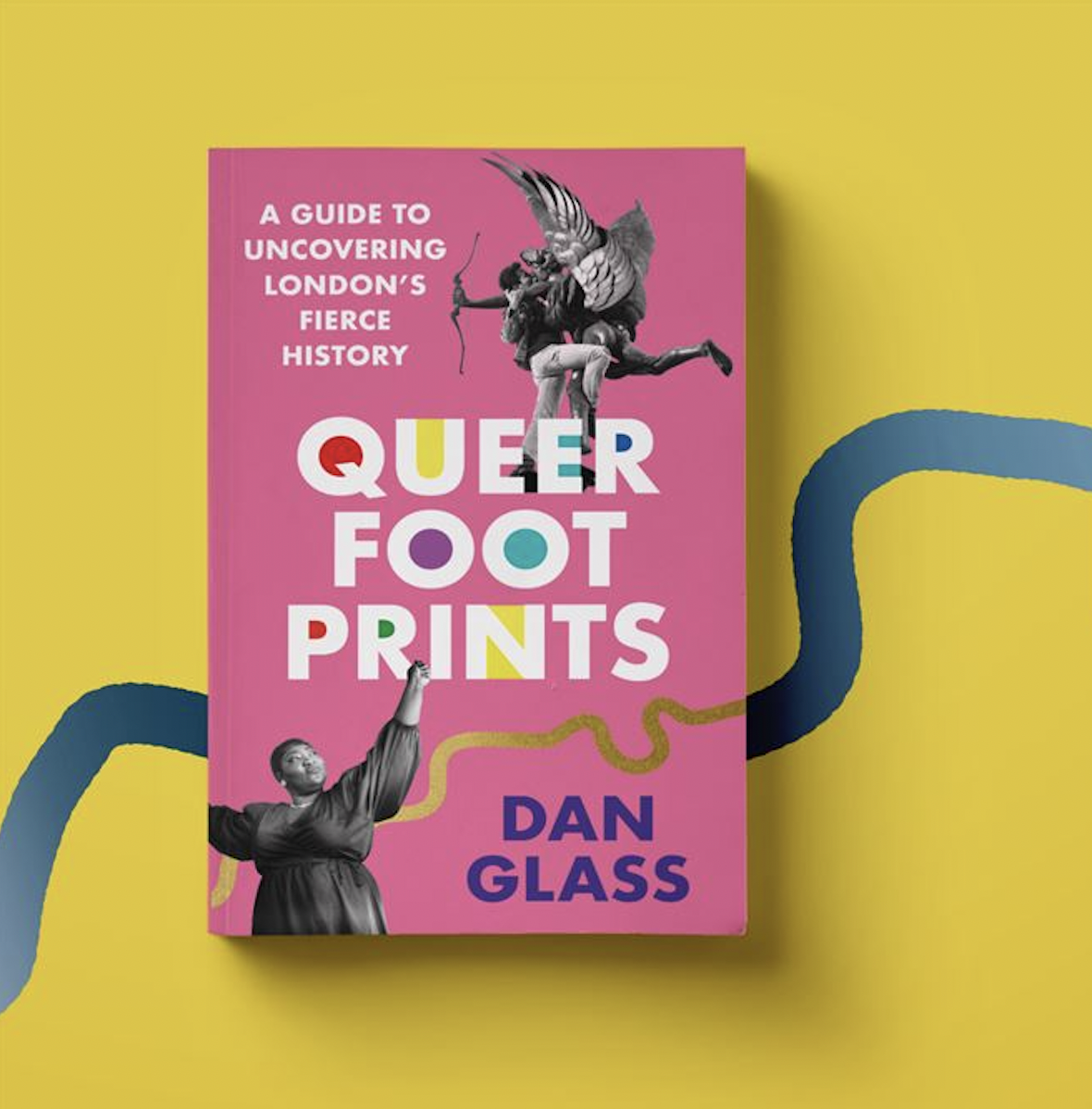Post
BOOK REVIEW | Queer Footprints offers a walk on the wild side
15 Jun 2023
By Dan Glass
Reviewed by Fiona Keating
To celebrate London Pride in July, this comprehensive and well-researched book takes you on a journey around the famous and infamous places in the capital.
There have been hundreds, if not thousands of London guides from straightforward traditional ones which highlight places like Buckingham Palace, to off the beaten track London guides.
There is a thirst for seeing more of London – the good, bad and outrageous. Dan Glass’s book Queer Footprints: A Guide to Uncovering London’s Fierce History, does just that. It’s a celebration of LGBTQ life and locations in eight whistle-stop tours. Each chapter has a very catchy title and my favourite is The Fags Have Lost That Wounded Look – Piccadilly.
Author Dan Glass founded Queer Tours of London in 2016, so he’s pounded the pavements bringing punters to East, West, South and North London.
There are maps to each walk, illustrated by Mark Glasgow with all the stopping points numbered. Each chapter is peppered with anecdotal stories of celebrities such as Grace Jones dancing on the table at Madame Jo Jo’s.
Along with all the frivolity, there’s also the reality of homophobia, as in the bombing of the Admiral Duncan pub in Old Compton Street. In 1999, the pub was bombed by neo-Nazi David Copeland, with three people killed and 83 injured.
There are also the queer heroes, such as Josh Hepple, a disabled LGBTQ activist. He has done important work in asking club managers to build ramps improving accessibility as well as disabled toilets.
This book isn’t just for the queer community. It’s packed with information on all those who want to find out every aspect of London, which is a litmus test for what’s happening in the world we live in. Take St Mary's Park in Whitechapel. In 1978, a 25-year-old British Bangladeshi clothing worker called Altab Ali was stabbed to death by three teenage boys in the park.
This was during a time when the National Front were roaming the streets. Ali’s death caused such outrage that it brought together the Bangladeshi, Caribbean, Indian, Pakistani, gay and Jewish communities. In 1998, the park was renamed Altab Ali Park, and there is a memorial to him and others who have died in racist attacks.
At the back of this guide book are excellent resources and further reading, plus where to find accessible and gender neutral toilets.
In all, an informative guide which sparkles with humour as well as remembering important dates in the political history of London.
